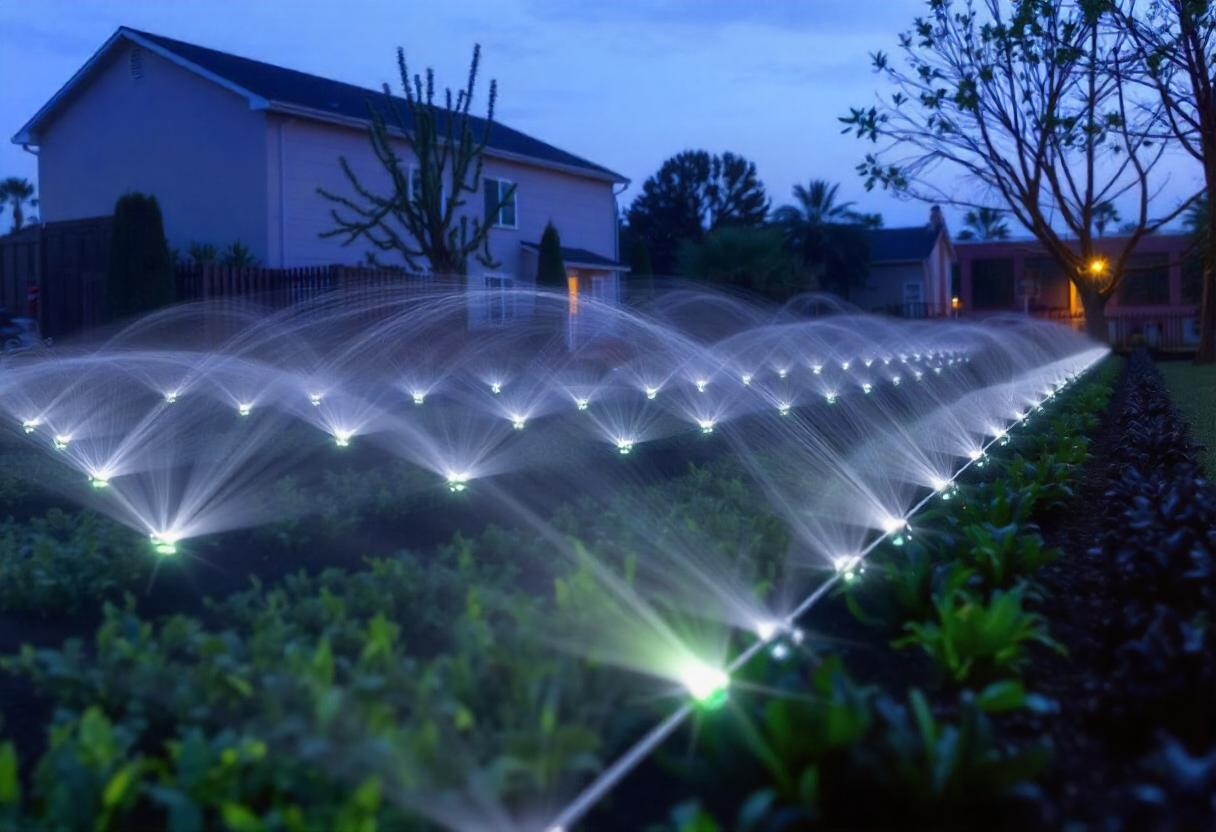
Smart irrigation systems are revolutionizing the way we manage water resources in agriculture, landscaping, and residential areas. These systems use advanced technology to ensure that water is used efficiently, reducing waste and improving crop yields. With the increasing pressure on water conservation, smart irrigation is becoming a critical component of sustainable agricultural and environmental practices.
Components of Smart Irrigation Systems
Smart irrigation systems are made up of various components that work together to optimize water usage. The key components include:
- Sensors: Soil moisture sensors, weather sensors, and temperature sensors are used to collect real-time data. This data is then analyzed to determine the optimal amount of water needed for crops or plants.
- Controllers: The controller is the brain of the system, which processes the data collected by sensors and decides when and how much water to apply. Some advanced controllers can be programmed to operate based on weather forecasts and soil conditions.
- Valves and Sprinklers: Valves control the flow of water, and sprinklers distribute it evenly across the area being irrigated. In smart systems, these components are often automated and can be controlled remotely.
- Communication Technology: Many smart irrigation systems are equipped with Wi-Fi, cellular, or radio frequency technology, allowing users to monitor and control the system remotely using a smartphone or computer.
Types of Smart Irrigation Systems
There are different types of smart irrigation systems designed to meet the needs of various applications:
- Weather-based Systems: These systems use real-time weather data to adjust watering schedules. For example, if rain is forecasted, the system will reduce or skip watering sessions to prevent over-irrigation.
- Soil Moisture-based Systems: These systems rely on soil moisture sensors to determine when watering is necessary. When the soil moisture level drops below a certain threshold, the system automatically waters the plants.
- Flow-based Systems: Flow sensors monitor the water flow through the irrigation system and detect any leaks or malfunctions. This ensures that water is used efficiently and helps to identify any issues before they cause significant water waste.
Benefits of Smart Irrigation Systems
Smart irrigation systems offer numerous benefits, making them an attractive choice for farmers, landscapers, and homeowners:
- Water Conservation: By applying water only when needed, smart irrigation systems significantly reduce water usage. This is particularly important in regions where water scarcity is a major concern.
- Cost Savings: Efficient water management leads to lower water bills, especially for large-scale agricultural operations or commercial properties with extensive landscaping.
- Improved Crop Yields: In agriculture, precise irrigation ensures that crops receive the right amount of water at the right time, resulting in better growth, higher yields, and improved crop quality.
- Remote Monitoring and Control: Users can monitor and control their irrigation systems from anywhere using a smartphone or computer, allowing for real-time adjustments based on weather or crop conditions.
- Reduction of Runoff and Erosion: Smart systems prevent overwatering, which can lead to runoff and soil erosion. This not only conserves water but also protects the environment from pollution and degradation.
Challenges in Implementing Smart Irrigation Systems
While smart irrigation systems offer many advantages, there are also challenges that need to be addressed:
- Initial Cost: The upfront cost of installing a smart irrigation system can be higher than traditional systems. This can be a barrier for small-scale farmers or homeowners with limited budgets.
- Technical Expertise: Operating and maintaining a smart irrigation system requires some level of technical knowledge. Farmers or property owners may need to invest in training or hire professionals to manage the system.
- Connectivity Issues: Remote areas with poor internet or cellular connectivity may face challenges in utilizing some of the more advanced features of smart irrigation systems.
- Data Accuracy: The effectiveness of a smart irrigation system depends on the accuracy of the data collected by sensors. Inaccurate data due to faulty sensors or incorrect placement can lead to improper watering, negating the benefits of the system.
Applications of Smart Irrigation Systems
Smart irrigation systems are used in a wide range of applications, from agriculture to residential landscaping:
- Agriculture: Farmers use smart irrigation to optimize water usage and improve crop yields. These systems are particularly beneficial for precision farming, where water, fertilizers, and other inputs are carefully managed based on real-time data.
- Urban Landscaping: Cities and municipalities use smart irrigation to maintain parks, gardens, and public spaces. These systems help reduce water waste while ensuring that green spaces remain healthy and vibrant.
- Residential Landscaping: Homeowners can install smart irrigation systems to manage their lawns and gardens efficiently. These systems save water and reduce the time and effort required for garden maintenance.
- Golf Courses: Smart irrigation is widely used in golf course maintenance to keep the greens and fairways in top condition. The system ensures even watering, prevents overwatering, and minimizes water waste.